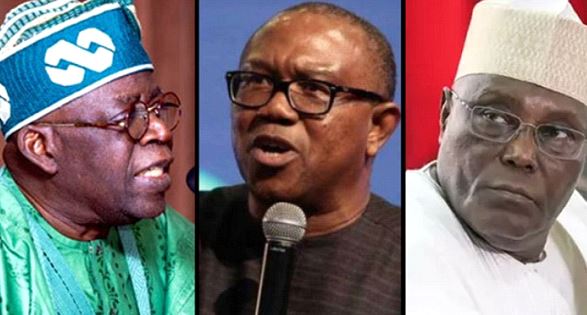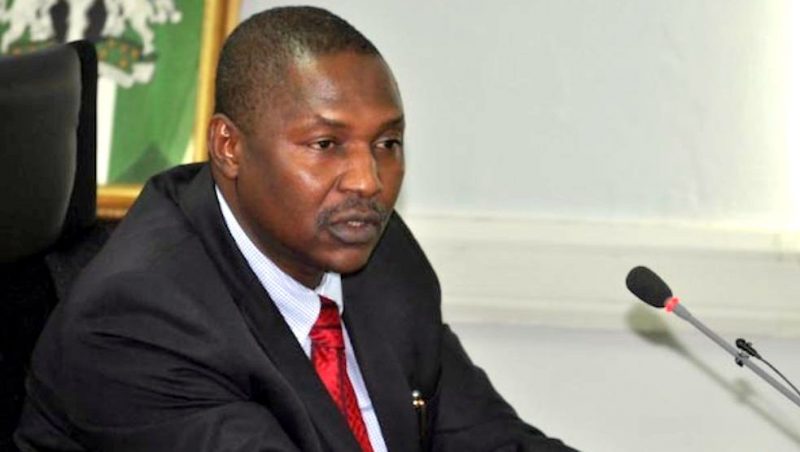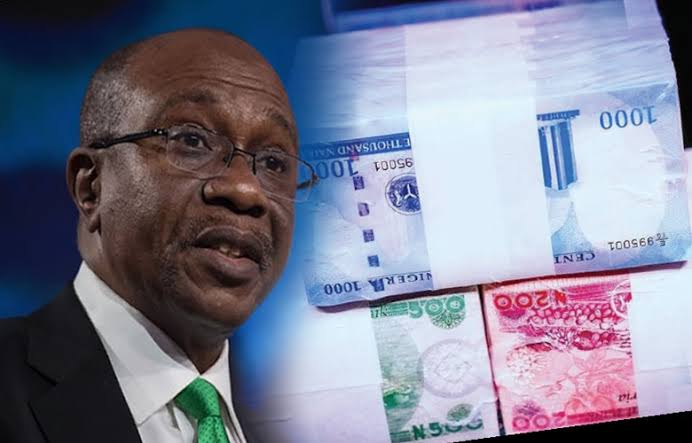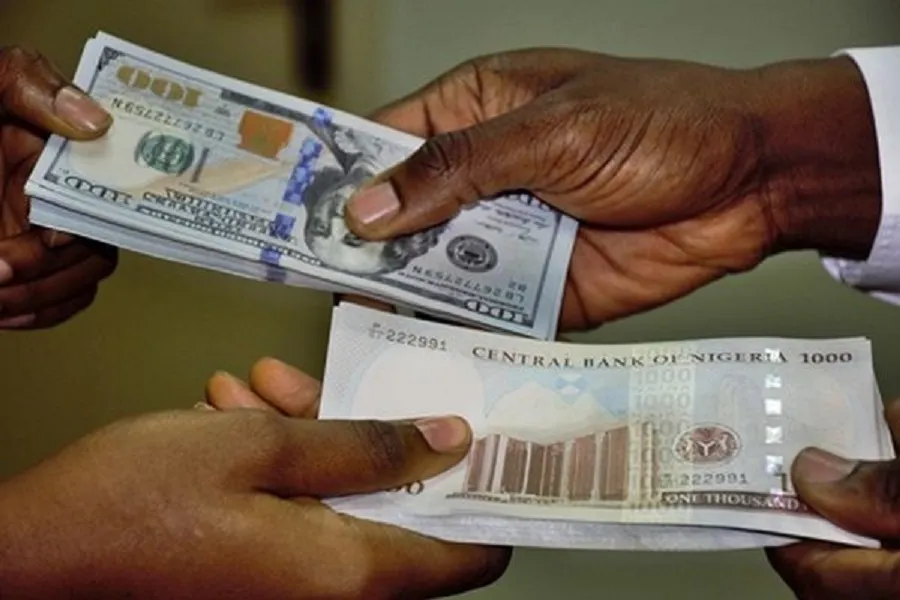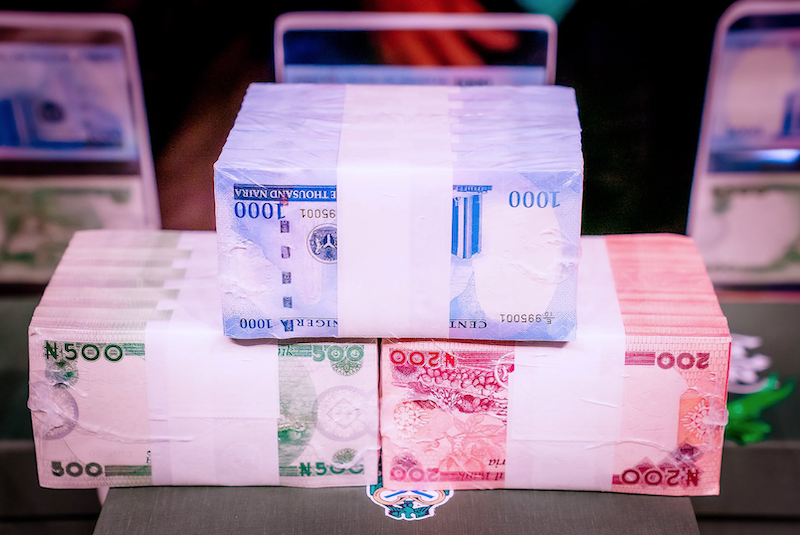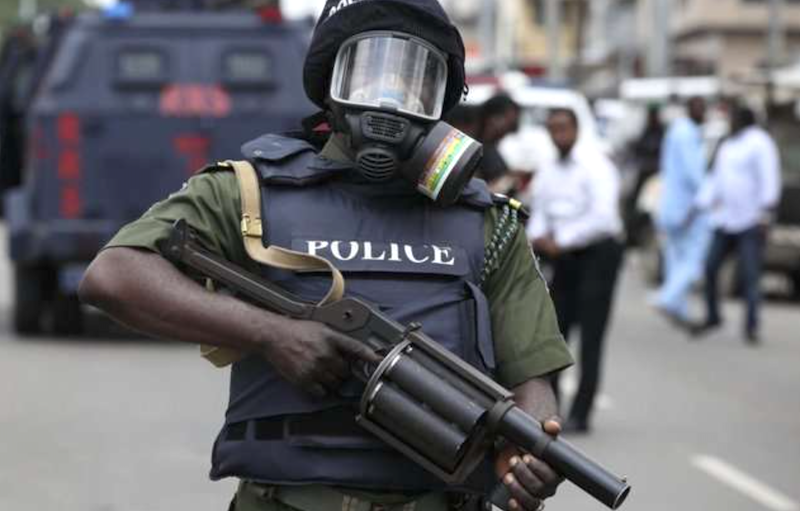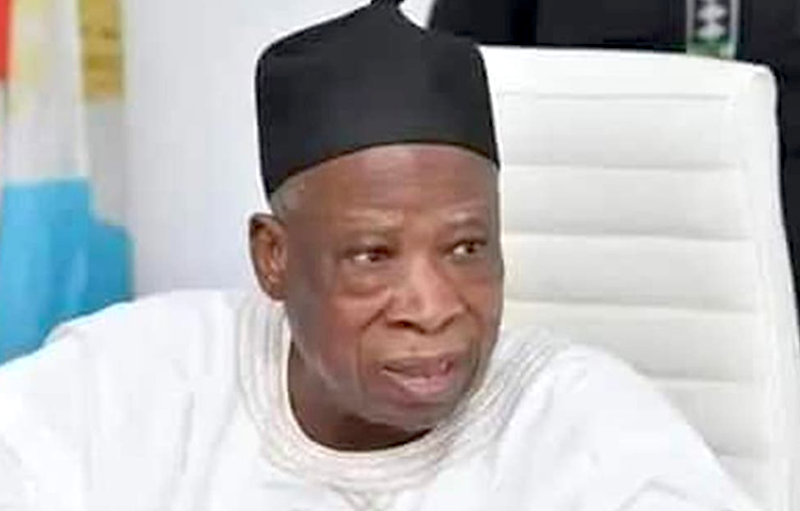As Nigerians, especially the helpless poor, groan in the pain and misery occasioned by the lingering Naira notes scarcity, the political environment is increasingly awash with rumours and allegations concerning an impending military intervention in the country’s political process. The situation is not helped by the palpable frustration and anger pervading the entire country, particularly the rural communities where the near-absence of electronic banking facilities is exacerbating the Naira scarcity-induced hardship. Meanwhile, related sporadic violence is further fueling the crisis situation that is serving to cast a pall of ominously dark clouds upon the presidential election due in a matter of days.
But even more worrisome is the unbecoming conduct of the leadership of the two main contending parties, the ruling All Progressives Congress (APC) and its rival Peoples Democratic Party (PDP), both of which are trading allegations of coup-plotting and other anti-democratic designs. Without providing any shred of credible evidence, each party is accusing the other of precipitating the Naira notes scarcity and the lingering nationwide petrol shortage in order to create an anarchic situation that could serve as an excuse for some military opportunists to seize power in a coup d’etat.
At a campaign rally on February 3, 2023, the APC’s presidential flagbearer, Bola Ahmed Tinubu, alleged that the petrol shortage as well as the Naira notes scarcity were the deliberate actions of “fifth columnists,” who were bent on derailing the February 25th election and his imminent victory at the polls. According to him, “They are hoarding the Naira so that you can be angry and fight. They want confusion so that the election can be postponed. What they want is an Interim National Government (ING). But we are wiser than them. We will not fight …”
Reacting to his allegation, a presidential campaign spokesman of the PDP, Kola Ologbondiyan, countered that Tinubu is the “mastermind” of the new Naira notes scarcity. He described Tinubu as an “Artful Dodger,” whose allegation stems from his “desperate bid to cover his criminal tracts,” having been involved in “a high-level criminal racket by sabotaging the system, intercepting and diverting millions of new Naira notes meant for distribution to Nigerians for his selfish use.”
Irked by the PDP spokesman’s aspersions, Tinubu’s chief campaigner, Femi Fani-Kayode aka FFK, responded with a treasonable charge that the PDP’s presidential flagbearer, Atiku Abubakar, was collaborating with some serving military Generals to destabilize the country. In a February 10th tweet, the garrulous FFK queried: “Is this part of the wider agenda to disrupt the elections, destabilize the country, set us on fire, incite chaos and violence, provoke a coup d’etat and establish a new and unconstitutional order in our beloved country under the auspices of an ING?” Unsurprisingly, he was invited for a “chat” by the State Security Service (SSS) three days later.
While FFK subsequently recanted his tweet, the Speaker of the House of Representatives, Femi Gbajabiamila, entertained no such intension as he continued to tell whoever cared to listen that the lingering Naira notes and petrol scarcity were contrived to scuttle Tinubu’s imminent electoral victory: “Nobody can convince me that it is not a plot to stop Asiwaju (a traditional title of Tinubu’s) from becoming the president of this country … But I am glad that our God is a wonderful being as the plot these people sat together to hatch he has intervened.”
Unlike Gbajabiamila, Governor Nasir El-Rufai of Kaduna State refused to plead divine intervention. He took the matter to his State’s electorate on February 16, 2023 in a lengthy 31-point address, stating categorically that the plot to weaponize the Naira and petrol scarcity against Tinubu is being masterminded by Atiku Abubakar and the Central Bank of Nigeria (CBN) Governor, Godwin Emefiele. According to him, the plot sought “to ensure that the cash crunch is so serious that the 2023 elections do not hold at all, leading to an ING to be led by a retired Army General,” and also “to sustain the climate of shortage of fuel, food, and other necessities, leading to mass protests, violence, and breakdown of law and order that would provide a fertile foundation for a military takeover.”
Pertinently, the SSS failed to invite the influential Governor for a “chat” like that of FFK. However, it is noteworthy that the ugly events playing out in the country, especially the frustration, anger, and violence arising from the combined effects of the lingering petrol and Naira notes scarcity, are symptomatic of military coup situations across the African continent. Amidst declining socioeconomic conditions, rising levels of Islamic fundamentalist terrorism, and general banditry, military coups that had become a rarity on the continent since the end of the Cold War in 1991 are once again on the ascendancy, with opportunistic military predators capitalizing on the time-worn excuses of corruption, economic mismanagement, and political instability to usurp power.
Between 2020 and 2022, a spate of coup d’etat was witnessed in Africa, with a majority occurring in the West African sub-region. First, it was Mali, where Colonel Assimi Goita ousted the government of President Ibrahim Keita on August 18, 2020 and installed a stooge named Bah N’daw, whom he subsequently toppled to seize the reins of power for himself on May 24, 2021. In Chad, self-styled General Mahamat Deby seized power following the death of his father, President Idriss Deby, on April 20, 2021. In Guinea, Colonel Mamady Doumbouya overthrew President Alpha Conde on September 5, 2021. In Burkina Faso, President Roch Marc Kabore was deposed on January 23, 2022 by Lt. Colonel Paul-Henri Damiba, who was equally sent packing by Captain Ibrahim Traore on September 30, 2022.
Nigeria has managed to forestall the predatory opportunism of power-hungry military officers since the dawn of the present democratic dispensation in 1999, even though the country has been plagued by ethno-religious violence in the forms of Boko Haram Islamic fundamentalist terrorism; Niger Delta resource agitation militancy; murderous clashes between nomadic Fulani herdsmen and their host communities; the banditry and brigandage of amorphous criminal groups; etc. Nevertheless, the lingering Naira notes scarcity, which has unleashed untold hardship upon the near-docile masses, should be brought to a quick end, to forestall any attempt by predatory military opportunists to exploit the crisis situation.
Without further delay, the CBN should provide enough quantities of the new Naira notes to commercial banks for onward disbursement to their customers. It’s untenable that about 2.1 trillion old Naira notes have been withdrawn from circulation and a measly 400 billion new notes disbursed to the commercial banks for circulation, even though it’s understandable that the CBN is trying to implement a “Cashless Society” policy, and a related economic programme of deflationary “Monetarism.”
Popularized by the American Nobel Prize-winning economist, Milton Friedman, “Monetarism” is a neoclassical macroeconomic theory, which posits that the government can control inflation and price levels by a steady and gradual expansion of the amount of money in circulation. It is an extension of the “Quantity Theory of Money” (QTM) associated with the 16th Century renaissance mathematician, Nicolaus Copernicus. QTM holds that the general price levels of goods and services is directly proportional to the amount of money in circulation; and that the price of goods and services will rise or fall in accordance with the level of money supply.
Nigerians are unanimously agreed that there is an overriding need for the government to rein in the country’s galloping inflation through deliberate policies. But the CBN’s poorly-implemented Naira redesign policy, and its attendant drastic reduction of the Naira notes in circulation from about 2.8 trillion to the present estimated level of 700 billion, are only serving to further pauperize and strangulate the long-suffering masses, socioeconomically. Hence, the apex bank must urgently make available to the populace, especially the rural communities, enough quantities of cash for their daily transactions. For, as the English Poet, Geoffrey Chaucer, famously wrote in his Canterbury Tales, “Every decision that is established so strongly that it may not be changed under any possible circumstance, that decision, I say, is wicked.”
Relatedly, a popular adage says: “A drowning man will cling to a serpent.” Hence, a hungry, angry, and traumatized mass of people will embrace any group of armed usurpers of power posturing as revolutionaries, liberationists, salvationists, emancipators, redeemers, etc., in the manner of the African opportunistic military coup plotters of the immediate post-Independence era, who went on to pillage, plunder, and underdevelop their various countries despite their progressive labels.
Thus, as Nigerians head to the polls on February 25 and March 11, 2023, the ominously dark clouds gathering on the horizon must not be allowed to envelope the country under any guise. Both the voting and non-voting public must be on guard to thwart the anti-democratic machinations of the country’s buccaneering politicians, whose conception of politics revolves around the Machiavellian aphorism – “The end justifies the means.”
⦁ Dennis Onakinor, a global affairs analyst, writes from Lagos – Nigeria. He can be reached via e-mail at ⦁ dennisonakinor@yahoo.com

